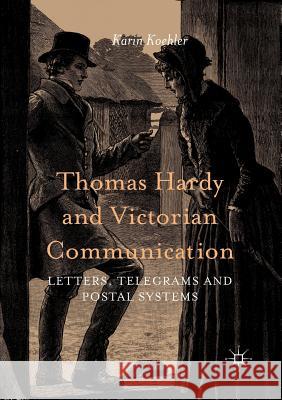Thomas Hardy and Victorian Communication: Letters, Telegrams and Postal Systems » książka
topmenu
Thomas Hardy and Victorian Communication: Letters, Telegrams and Postal Systems
ISBN-13: 9783319804903 / Angielski / Miękka / 2018 / 246 str.
Kategorie:
Kategorie BISAC:
Wydawca:
Palgrave MacMillan
Język:
Angielski
ISBN-13:
9783319804903
Rok wydania:
2018
Wydanie:
Softcover Repri
Ilość stron:
246
Waga:
0.31 kg
Wymiary:
21.01 x 14.81 x 1.4
Oprawa:
Miękka
Wolumenów:
01
Dodatkowe informacje:
Wydanie ilustrowane











